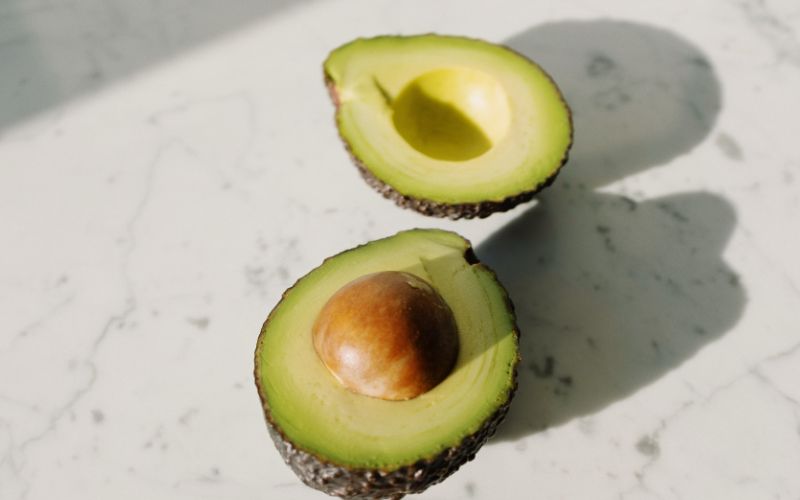PCOS is a common hormonal disorder affecting many women, typically linked to higher levels of male hormones (like testosterone) and often characterized by multiple cysts on the ovaries. These cysts form due to an overproduction of hormones called androgens, which can lead to symptoms like irregular periods, oily skin, and facial hair.
If you suspect you have PCOS, consult with your healthcare provider. Diagnosing PCOS typically involves blood tests to measure hormone levels and an ultrasound to check for ovarian cysts.
Signs of Testosterone Dominance in PCOS:
When PCOS is associated with high testosterone, it can add a unique set of challenges. Women with testosterone dominance might experience:
- Oily skin and acne
- Excess facial and body hair (hirsutism)
- Hair thinning on the scalp
- Mood swings or irritability
Sound familiar? You’re not alone! Many women with PCOS and high testosterone face these issues. But with a little help from lifestyle adjustments and the right supplements, there’s a lot you can do to manage them.
The Low-Glycemic Diet for PCOS with Testosterone Dominance
Dr. Jing Liu, our go-to expert for PCOS advice, suggests that people with PCOS and testosterone dominance follow a low-glycemic diet. The goal of a low-GI diet is to maintain stable blood sugar levels by consuming foods that are digested at a slower pace. This approach helps minimize significant increases in insulin and blood glucose levels—two key factors in managing testosterone levels.
Foods to Avoid for PCOS:
To keep blood sugar levels stable and prevent hormone spikes, try to avoid foods that can worsen insulin resistance, like:
- Sugary foods and drinks: Candy, soda, and desserts can cause quick blood sugar spikes.
- Refined carbs: White bread, pasta, and pastries break down quickly into sugar, affecting insulin levels.
- Saturated fats and processed meats: Think hot dogs, sausages, and fried foods, which can add stress to the body’s hormone balance.
- Excessive red meat: While small amounts are okay, too much red meat can potentially contribute to higher testosterone levels.
Foods to Include for PCOS:
A low-glycemic diet focuses on whole foods that are nutrient-dense and won’t spike blood sugar. Here are some friendly options:
- Leafy greens: Spinach, kale, and collard greens are packed with vitamins and minerals.
- Whole grains: Quinoa, brown rice, and barley provide fiber to keep you fuller longer.
- Lean proteins: Chicken, turkey, tofu, and legumes help balance hormones.
- Healthy fats: Avocado, nuts, and olive oil can support hormone health.
- Fiber-rich fruits: Berries, apples, and pears are low in sugar and high in fiber.
Supplements for PCOS and Testosterone Dominance
Sol Nutrition offers a range of supplements that can be helpful for managing PCOS symptoms, especially for those with testosterone dominance. Here are our top picks.
1. Ovulation Support
Even if you’re not trying to get pregnant, Ovulation Support can help regulate your menstrual cycle. Many women with PCOS don’t ovulate regularly, but this supplement promotes blood flow to the ovaries, supporting hormone balance and regular ovulation.
2. Sugar Down
High testosterone levels in PCOS are often linked to insulin resistance. Sugar Down is designed to support glucose metabolism, aid the pancreas, and help balance blood sugar levels. This supplement is rich in anthocyanins, which can be especially beneficial for improving glucose sensitivity.
3. Healthy Liver
The liver plays a crucial role in hormone regulation, especially for PCOS management. Healthy Liver helps detoxify and support the liver and pancreas, getting to the root of PCOS symptoms. Plus, it supports emotional health—a vital component for managing PCOS.
Lifestyle Tips for Women with PCOS and High Testosterone:
Making a few lifestyle tweaks can work wonders when managing PCOS with testosterone dominance. Here are some ideas to consider:
1. Exercise Regularly
Regular movement helps regulate insulin levels and can improve mood. Aim for activities that you enjoy, such as dancing, walking, or even gentle yoga. Strength training can be particularly helpful, as it helps balance hormones and manage weight.
2. Prioritize Sleep
Good sleep is essential for hormone regulation. Aim for 7-8 hours of restful sleep each night. Try to maintain a regular sleep schedule, as consistent rest can support balanced testosterone levels and reduce stress.
3. Manage Stress Levels
Chronic stress can worsen PCOS symptoms. Find ways to manage stress, whether through meditation, journaling, or spending time with friends. Sol Nutrition’s Relax Me supplement can be a great aid in helping your body and mind stay calm.
4. Stay Hydrated
Drinking enough water is essential for hormone balance and overall health. Try adding some lemon or cucumber slices to your water to keep things fun and refreshing!
5. Track Your Symptoms
Use a journal or an app to track your cycle, symptoms, and lifestyle habits. Tracking can help you identify any triggers and make informed adjustments to your routine.
Must Read: Essential Tips and Immunity Support from Sol Nutrition
Final Thoughts:
PCOS and testosterone dominance can be challenging, but with a balanced approach to diet, lifestyle, and supplementation, you can manage your symptoms and feel your best. Try to take it one day at a time, make small changes, and celebrate your progress.
For more tips and updates, be sure to follow Sol Nutrition on TikTok and Instagram!


Share:
Managing Endometriosis with Traditional Chinese Medicine